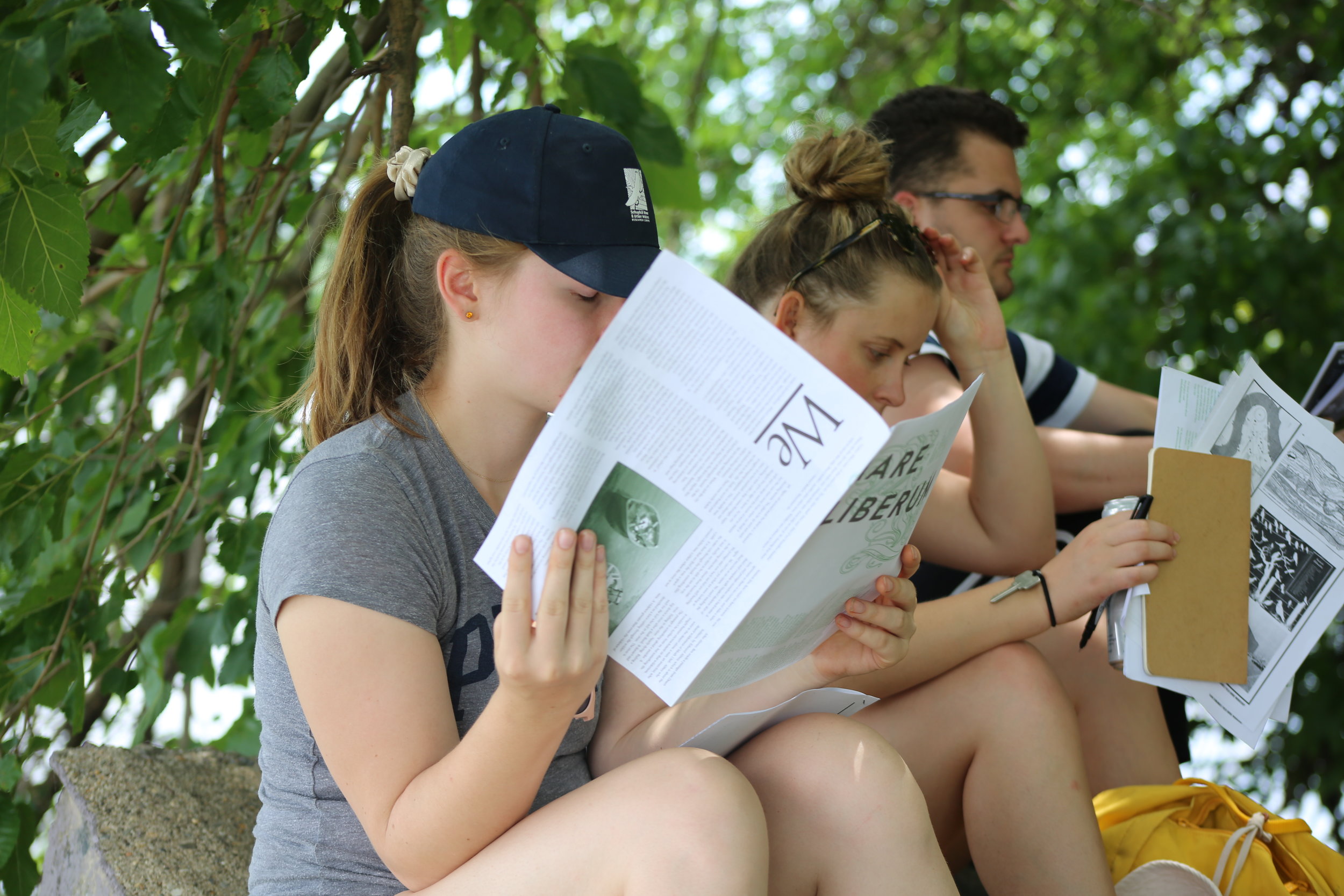Remediations
Notes
Knar Gavin offers her reflections on Yudith Azareth Nieto's work on Another Gulf is Possible, a collaborative that operates on behalf of frontline communities in sacrifice zones of the Gulf South.
Throughout Fall 2017 and Spring 2018, the Data Refuge Storytelling team developed, tested, and tinkered with a number of paper and digital tools for telling stories about federal climate and environmental data and the human and nonhuman lives that it impacts.
Good data help us make good decisions. Their importance seems obvious, even self-evident. But then again, data can't speak for themselves. We lend them meaning. What data mean depends to a great extent to how we use data, how we understand those uses, and how its use helps us to care for the things--and the people, the places, and the non-human species--we care about.
Podcast
A conversation with New York-based dancer, scientist, and performance studies scholar about bringing future to life through participatory site-specific performances.
This episode of Data Remediations features the voices of residents of South Philadelphia long site to what was, until it blew up last year, the world’s longest continuously operating petroleum refinery. Residents talk about life with the refinery, scientists and public health experts weigh in on the environmental and health impacts it has caused. In February, bankruptcy court approved the purchase-sale agreement of the massive site along Philadelphia’ rivers to a Chicago-based developer, Hilco, Earlier this month (April 2020), amidst a global pandemic and shelter in place orders, Hilco botched a demolition in Chicago and dust and debris settled across the local neighborhood. With Hilco’s plans largely unknown, Philadelphians are getting ready for a new chapter in the struggle for environmental justice.
This episode of Data Remediations features a special interview with Philadelphia-based documentary filmmaker, Bilal Motley. For nearly 15 years, Bilal worked in management at the Philadelphia refinery. He offers us a glimpse into the everyday world of a petroleum refinery, and we talk about what it was like to work there and how it felt to be there the night last June when it blew up and why he decided to put his filmmaking skills--and experiences as a stand-up comedian--to make a documentary about a really scary event.
In Episode 7, part 1, hosts Grace Boroughs and Evie Sorrell introduce the many exciting Philadelphia-based data stories. Then, Bethany Wiggin, Katie Collier, and Piotr Wojcik speak with Nathaniel Popkin to talk about their participation in the data storytelling and climate sensing art work, a hybrid virtual reality and live performance in called The Altering Shores, conceived and directed by Roderick Coover in late November 2019.
In Episode 6, Bethany Wiggin and Meg Arenberg discusses the ways that academics and activists in Houston, a “city entwined with petroleum,” address environmental and climate (in)justices. First, Dominic Boyer considers the emergency of Houston as a frontline city and shares what he’s learned about the slow recovery process post-Hurricane Harvey. Then, activist Yudith Nieto shares her experiences with community organization, urgent collaborations with sciences, and the importance of working creatively towards Another Gulf.
What’s your climate story? In Episode 5, hosts Patricia Kim and Bethany Wiggin discuss the kinds of stories we need to compel climate action and introduce Data Refuge’s new climate storytelling campaign. Since late 2016, Data Refuge has deeply engaged with the necessity for accessible archives and open data. But the question of open access and open data also concerns who can contribute to archives, whose data matter. Listen and learn as we speak with open data experts and one artist about what it takes to create open archives that address the environmental challenges of our present moment.
What’s the lifecycle of data?
In this episode, hosts Patricia Kim and Bethany Wiggin explore the liveliness of government data—its lifecycle from birth through its death, or afterlives. Listen to librarians and government data experts Jefferson Bailey, Abbie Grotke, Jim A. Jacobs, and James R. Jacobs as they discuss the challenges associated with preserving, web archiving, and stewarding government data and digital assets for present and future communities across the nation and the globe.
To learn more about government data, visit www.freegovinfo.org and www.pegiproject.org.
In part 2 of episode 3, host Patricia Kim and student intern Grace Boroughs talk to Philly-based scientist Peter DeCarlo and artist Roderick Coover about the ways that they address issues of data poverty and patchiness by ground-truthing. Although they approach Philadelphia’s riverine refinery landscapes using different research methods, their work collectively demonstrates how various modes of study complement one another. Tune in as Grace asks Peter about his research on the river and with The Schuylkill River and Urban Waters Research Corps. Then, listen as Patricia talks with Roderick Coover about his imaginative works around the Delaware Estuary in an era of sea-level rise, about the potential of arts-driven inquiry, and about cultural heritage.
In this two-part third episode, we learn about “ground truthing” in the city of brotherly and sisterly love, Philadelphia. In Part 1, we talk to scholar Candis Callison, artist Roderick Coover, and Sustainability Director Christine Knapp about the problem of uncertain futures, and the ways in which scientific data and digital assets need personal experiences and stories, or ground truths. Then we meet the residents of Eastwick, a neighborhood in southwest Philadelphia. Eastwick neighbors Leonard Stewart, Margie and Nancy Cobb, and Earl Wilson teach us about the ways that they brought model truths and ground truths together to make environmental changes in their neighborhood.
In this episode, hosts Patricia Kim and Bethany Wiggin talk to Daniel Castro, Daniel Aldana Cohen and Christine Knapp about concepts like “data poverty,” and what cities are doing to gather emissions data—and how we can improve. Also, we welcome our new Public Research Interns, Grace Boroughs and Katie Collier, who remind us to “Love Your Data.”
















